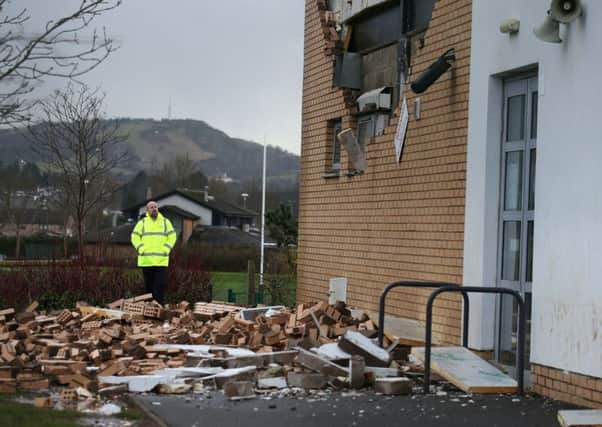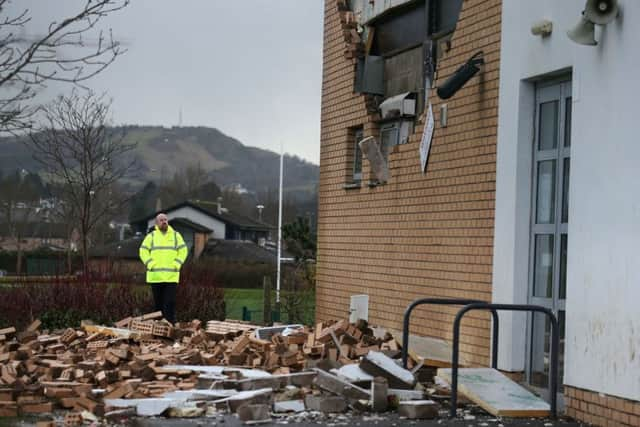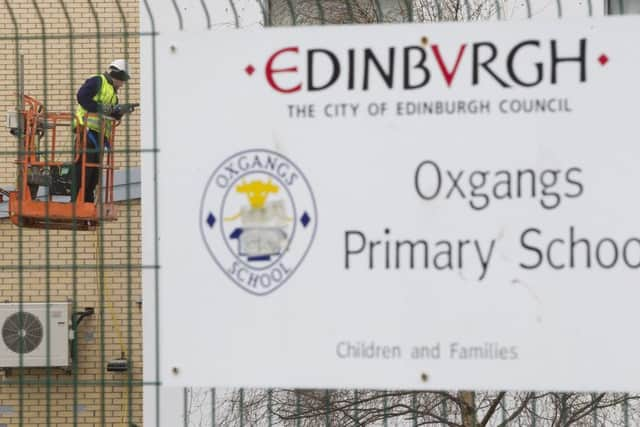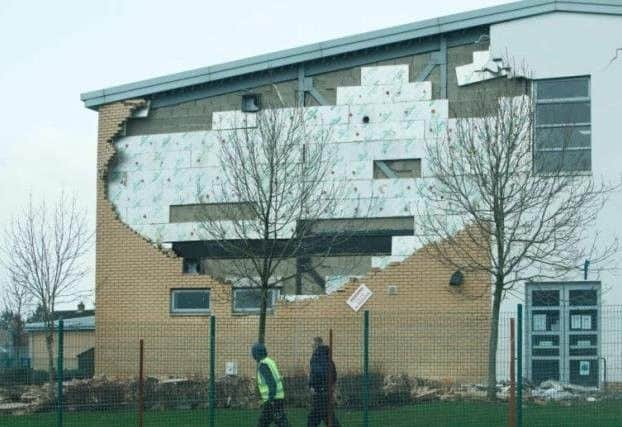Edinburgh school closures: '˜Luck' that no children were killed


That was the conclusion of an independent expert after the findings of an inquiry into Edinburgh’s school buildings scandal were laid bare this afternoon.
The 250-page report examines the construction of a number of schools across the Capital following the collapse of a brick wall at Oxgangs Primary School in January last year.
Advertisement
Hide AdAdvertisement
Hide AdIt states the wall’s collapse – which happened in the early hours of the morning – was caused by a combination of “poor quality” construction and a lack of adequate supervision.


Led by construction expert Professor John Cole, the report sets out a number of failings which led to the collapse, as well as the subsequent closure of 17 schools across the Capital.
All of the schools which closed were built between 2002 and 2005 as part of a private-public partnership deal (“PPP1) between the city council and the Edinburgh Schools Partnership (ESP) private finance consortium.
A private-public partnership - also referred to as a private finance initiative (PFI) - sees contractors pay for construction costs before renting the finished building back to the public sector.


Advertisement
Hide AdAdvertisement
Hide AdAs well as criticising the ESP for the construction carried out under its charge, the city council also comes under fire for relying too heavily on contractors’ inspections.
Prof Cole states this meant they were “marking their own homework” and that the council was “effectively totally reliant” on the quality assurance processes of the ESP and their construction supply chain.
He said: “Professor Cole commands respect in both construction and procurement fields which has been borne out in the thoroughness and quality of his independent investigation and the report before council today.


“We set out clear and thorough terms of reference so he could identify the reasons for the wall collapse at Oxgangs and the subsequent building faults that forced us to close the 17 schools.
Advertisement
Hide AdAdvertisement
Hide Ad“The report pulls no punches and makes clear what went wrong, the reasons for it and where responsibility lay.
“Clearly there are lessons for the council and I will now be drawing up an action plan to take our recommendations forward to ensure everyone can have confidence in the safety of all of our buildings.
“The council, our public and private sector partners both in Scotland and across the United Kingdom, need to take on board the issues raised and address the concerns highlighted in the report as they have far-reaching implications for the construction industry.”


Around 8000 pupils were affected by the school closures, although in his report Prof Cole says any impact on educational attainment was likely to have been “relatively limited”.
Advertisement
Hide AdAdvertisement
Hide AdHe also praised the council for handling the situation “extremely well” given the unexpected nature of what happened, adding it was the right decision to close the schools.
Mr Kerr added: “As always, our overriding priority was the safety of the pupils and staff and I am pleased that Professor Cole recognises that our decision to close the schools was well founded and that he acknowledged the scale of the alternative educational arrangements required – and ultimately delivered.
“I want to thank parents once again for their patience last year and the outstanding efforts of teachers and other council staff who pulled out all the stops to ensure our children’s education could continue.
“I would also like to thank Professor Cole and his team for their hard work on this important inquiry.
Advertisement
Hide AdAdvertisement
Hide Ad“We must ensure that the highest possible standards are adhered to when it comes to future construction projects and ensure that nothing like this can happen again.”


The report also examines the use of private finance for building projects but concludes the PPP approach did not negatively influence the construction of the schools.
A total of 40 recommendations are made in the report, covering areas such as procurement, construction, training and the role of building standards and independent certifiers.
It adds the construction issues encountered in Edinburgh were likely to be more widespread across the UK, saying it would be “naive” to think the problems only related to schools.
Advertisement
Hide AdAdvertisement
Hide AdProf Cole appeared at the City Chambers this afternoon to present his findings before answering questions from councillors.
Melanie Main, education spokesman for the Greens, said it was “sheer luck” that no one was killed in the Oxgangs incident and said the report laid bare a “catalogue of failings”.
She said: “There are huge lessons to be learned by the council, by the construction industry and by the Scottish Government so that children and young people can be guaranteed schools which are safe.
“But behind all of that is an even more fundamental question.
Advertisement
Hide AdAdvertisement
Hide Ad“It is the sheer complexity of PPP contracts, PFI, Scottish Futures Trust, whatever we label them, which heightens the risk of all of these failings.
“I believe it is time to cut the complexity, cut the layers of buck-passing responsibility and put public bodies directly in charge of public buildings.”
